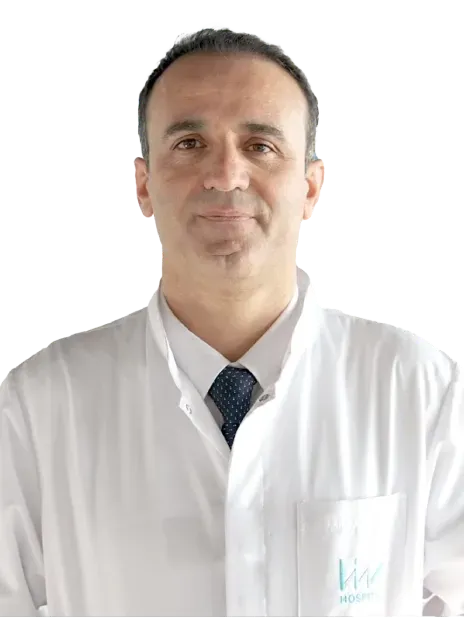Pediatric Cardiology
Last Update Date: 9/12/2025 12:31:47 PM
What is Pediatric Cardiology?
Pediatric cardiology is a medical specialty focused on diagnosing, treating, and managing heart and vascular system diseases in children. Specialists in this field address heart problems commonly found in children, such as congenital heart anomalies, valve diseases, heart rhythm disorders, and other cardiovascular issues.
Procedures Performed at Liv Hospital Pediatric Cardiology Clinic
Heart diseases in children can be broadly categorized into two main groups: congenital (inborn) or acquired. Unlike adults, a large proportion of heart diseases seen in childhood are congenital heart diseases. Rhythm disorders, commonly known as arrhythmias, can also occur in both groups.
Advanced diagnostic methods, including the following, are used:
- Electrocardiography (ECG)
- Chest X-ray (Telecardiography)
- Cardiac ultrasonography (Color Doppler Echocardiography)
- Cardiac catheterization and angiography
- 24-hour ECG monitoring for arrhythmias (Holter ECG)
- Electrophysiological studies
Diagnosis with Echocardiography (ECHO) at Liv Hospital
Echocardiography, or ECHO, commonly referred to as "Echo" by the public, is a fantastic diagnostic method that works with sound waves, contains no radiation, and has no harmful effects on human health. It is one of the safest imaging methods for children and even unborn babies in the womb. With ECHO, it is possible to detect and intervene in serious heart diseases in babies early on.
Fetal ECHO
Fetal echocardiography is a method used to diagnose the baby's heart in the womb through ultrasound. As it works with sound waves and contains no radiation, it poses no harm to the mother or the baby. When there is suspicion of a problem with the baby's heart in the womb, expectant mothers are referred to a pediatric cardiology specialist.
Who should undergo Fetal ECHO?
- Parents with congenital heart diseases
- Children of mothers with diabetes or connective tissue disorders
- Previous pregnancy involving a baby born with congenital heart disease
- Detection of abnormalities in the baby's digestive system, kidneys, brain, or other organs
- Low or excessive amniotic fluid during pregnancy
- Irregular fetal heartbeats
- Multiple pregnancies
- Risk factors like high blood pressure
In such cases, fetal ECHO is necessary.
Congenital Heart Surgeries
Equipped with state-of-the-art technology, Liv Hospital Pediatric Cardiology Clinic offers modern approaches to treating heart diseases in babies and children aged 0-18 with a team of experienced doctors and specialists from various disciplines. While performing anesthesia and heart surgeries on children weighing under 10 kilograms may not be possible in many clinics, congenital heart surgeries are successfully performed at Liv Hospital Pediatric Cardiology Clinic. The experienced pediatric cardiologists, pediatric anesthesia specialists, and the surgical and intensive care teams aim for exceptional success.
Heart Diseases in Children
While acquired heart diseases, which develop over the years, are common in adults, congenital heart diseases are more frequently seen in children.
The prevalence of congenital heart diseases is approximately 1%. A significant portion of these cases do not show symptoms at birth. Children with a family history of congenital heart diseases, such as in parents, siblings, or close relatives, are at additional risk. These conditions are called congenital because they are present from birth.
The exact causes of congenital heart diseases are not fully understood. However, certain factors during pregnancy, such as maternal rubella infection, medications like phenytoin and valproic acid used for epilepsy, dermatological medications like vitamin A, and drugs such as lithium used for thyroid conditions, as well as environmental and genetic factors, contribute to the development of congenital heart diseases. The risk of congenital heart disease is higher in children with first-degree relatives, such as parents or siblings, who have the condition.
Symptoms of Heart Diseases
- Fainting
- Fatigue
- Palpitations
- Growth retardation
- Chest pain
- Cyanosis (bluish skin discoloration)
- Breathing difficulties
- Recurrent lung infections
- Heart murmurs
- High blood pressure
Watch for Cyanosis in Babies!
Some heart defects manifest with cyanosis (bluish skin discoloration) immediately after birth, during infancy, or later in childhood. Although the development of these cyanotic babies may seem nearly normal, they may suddenly experience severe cyanotic spells. These spells can lead to loss of consciousness in children. Older children may experience shortness of breath and fainting during exercise. These symptoms are caused by the inability of blood to oxygenate properly in the lungs, which leads to insufficient oxygen supply to the body. Congenital heart disease occurs in 8 out of every 1,000 newborns. Among acquired heart diseases, the most common in children is acute rheumatic fever.












